Israel-Hamas war: What happened on day 87?
Hamas fires New Year's rocket barrage at Tel Aviv, central Israel • IDF: 17% of soldiers' deaths in Gaza were due to accidents, friendly fire
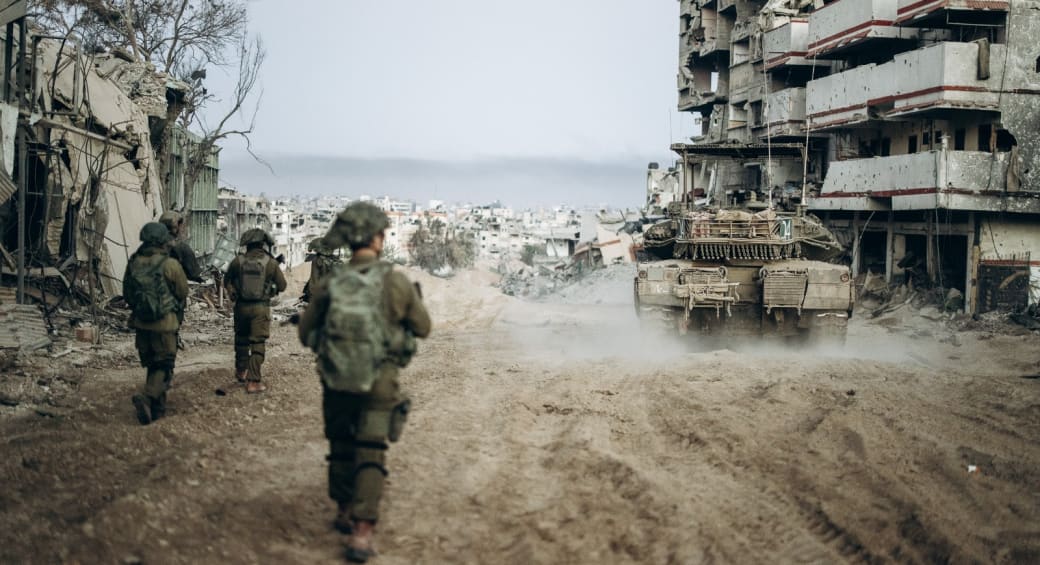
Be’eri residents released from Hamas captivity return to kibbutz for first time
The freed hostages returned for the first time to Be’eri as they look to move on from the memories of October 7 and the nightmare in Gaza.
Hostages released from Hamas captivity returned for the first time to Kibbutz Be’eri as they look to move on from the memories of October 7 and the nightmare in Gaza. "We were moved from house to house; the food ran out along with the terrorists' patience. At one point, we shared a small orange, just a slice or two per person." Everyone agreed on one thing: "No hostage must be left behind."
Hila Rotem enters her house carefully. She asks her aunt to stand by her side next to the broken kitchen countertop while she collects, from among the charred objects, the ones that are important for her to take. “It was sad to see the house. I took things that were important to my grandfather, who died when I was nine. Some broke, but I took what remained,” she said sadly.
Among the hostages who were freed and relatives of those still in Gaza who visited the kibbutz were Amit Shani, Raaya Rotem, and her daughter Hila Rotem, and the members of the Sharabi family, Oren, Ofir, Yuval, and Nira. They talked about what they went through on October 7 and their hard feelings during captivity.
Ambassadors to bring the hostages back
Through no choice of their own, while their relatives are still in Gaza, the released hostages have become prominent ambassadors in the fight to bring back the hostages. They walk between the remanents of their homes, trying to digest the images while their every step is followed by the media. Despite the complexities, they are adamant in sharing their feelings and speaking of the trauma they have been through.
Amit Shani stands at the entrance to his home. Behind him is a large picture of himself, in memory of the struggle to bring him back.
Shay Hagai, 19 years old, went back to live in his house a few weeks ago along with a dozen additional kibbutz residents. Since then, he has been guiding the media tours. “I went crazy in Ein Gedi. Everyone here does something else with their time. I started by working at the print, and I got a bit bored, so I moved to the hasbara team,” he said. “I still don’t dare to walk around at night. It's scary. At night, I lock myself up at home.”
Sharon Sharabi, whose two brothers are hostages, speaks outside the house of one of them with a microphone, like an experienced tour guide. Afterward, he continues into the rooms that were full of life a few months ago. On normal days I would have said: “Welcome to the home of Eli and Lian Sharabi. Today I say, welcome to the history of the people of Israel.” This is a war zone. In this small radius, Lian, Noya, and Yahel were murdered. Our family was slaughtered.
As he continues to talk, his words become grimmer. “The images you will see inside are not even one percent of what really happened, but all the people of Israel should make a pilgrimage to see them. They tried to exterminate the people of Israel. They took Eli out of the bomb shelter, from the safe place and took him to Gaza. Like they took Yossi. They still haven't met each other, but their destiny is not only to be brothers. It connects all of October 7. I hope this evidence resonates in every heart. Our grandfathers survived the Holocaust, and our generation has experienced a Holocaust. Document these moments. They will not return.”
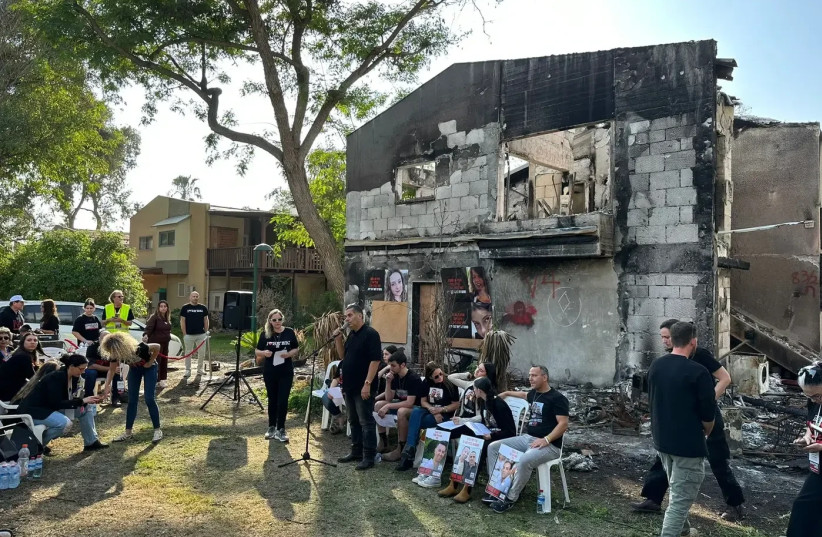
Recounting captivity
Amit Shani, 16, who returned from captivity, spoke about October 7 and his time in Gaza: “That Saturday I was in the bomb shelter, it started out as a normal red alert that we didn't get excited about and then we received an intrusion alert. At some point, it got worse, and we heard grenades and RPGs, they entered the house, broke things, took us out, and sat us on the edge of the sidewalk.”
On captivity in Gaza, he said, "The feelings in Gaza are very difficult, endless longing and a huge sense of abandonment. Everyone there is afraid of the bombings and the terrorists, and you don't know if you will wake up the next day. No one should stay there. They were abandoned once, and they don't deserve to be abandoned a second time.”
"I was in Gaza for 50 days, it was hard for me, in the dark, without enough food and water. We were not allowed to talk, only to whisper. It was scary, and there were lots of booms all the time," Hila Rotem said outside her destroyed home. "We moved from place to place, we were together with other hostages, after 50 days, they took Emily and me to be released and separated me from my mother. I was afraid something would happen to her. On the bus to Israel, they asked if I could guess who I was going to meet. I was afraid my Uncle Yaya died, so I said other names. In captivity, we planned what we would do on his birthday. I didn't think he would be without his mother. After a few days, they announced that she was coming back, I waited for her awake all night. I don’t stop thinking about those who are still there. Every day there feels like an eternity."
Her mother, Raaya, said, "On Saturday, October 7, I was with my daughter and Emily, her friend, who came to sleep at our house. It took six hours for them to reach us. They opened the door of the Mamad with guns and knives drawn, grabbed me by the shirt, and said in Arabic: ‘You are going to Gaza.' Security forces were not present in the kibbutz. All the gunshot noise was from the terrorists. The road to Gaza was completely open. In my heart, I already thought it would take a long time.
She continues to describe the conditions in captivity: "The conditions were not easy. We were a few hostages together and were moved from house to house. A few days ago, I ate an orange, and I remembered the small orange that we divided in captivity into several parts, a piece or two for each one. Sometimes it is better not to taste the food anymore. Time is running out in terms of food and drink, but also in terms of physical conditions, the danger of shelling, and the patience of the terrorists. Hila and I think a lot about those who were with us there. The situation was fragile, and now it is even more fragile. Every moment puts them at risk; we must return them urgently."
Ten members of Kibbutz Be’eri are still being held in Gaza. Oren Sharabi, 13, whose father Yossi was kidnapped, returned to Be’eri for the first time today. "It scared me to come here. After what we went through here, it's hard for me to be here, I was afraid to come," she admitted, "but I face the fear because the scariest thing is that my father has been in Gaza for 87 days and nights. On October 6, my father promised me that we would play football on Saturday night. But we woke up to a different world. When the terrorists arrived at the house, my father held the door of the Mamad. The first time he managed to stop them, the second time, he didn't. I hid under the covers. I heard the terrorists laughing; they told us to follow them, I saw how they tied up our father and our neighbor. My father did not take his eyes off my mother. Then suddenly the terrorists ran and left us alone. My dad is everything to me. Every drop of time is precious. I'm waiting for the soccer practice we planned the moment before it all happened."
"It was difficult for me to come here today. But it is important for me to talk about my uncle, Eli. You can always count on him to help," said Eli's niece, Ofir. "Eli was married to Lian, she and the girls were everything to him. Noya, Yael, and Lian were murdered that Saturday. I don't know if Eli knows they won't wait for him, but we are here, waiting to envelope him up."
At the opening of the event, Be’eri's communications director Miri Gad Masika announced the death of kibbutz member Ilan Weiss, who was murdered on October 7 and has been declared missing ever since. "Ilan was the deputy of the Tzah”i – the community emergency team, and provided logistical support to the standby units," Gad Mesika said about Weiss. We want to recognize him as an IDF soldier who was killed in the line of duty; he went to replace the military security coordinator in the distribution of weapons."
Go to the full article >>Discussions about the endgame in Gaza can't wait until the end of the war - analysis
That question isn’t something that can wait till the war is over, especially because the answer to it has effects on how the war needs to be carried out right now.
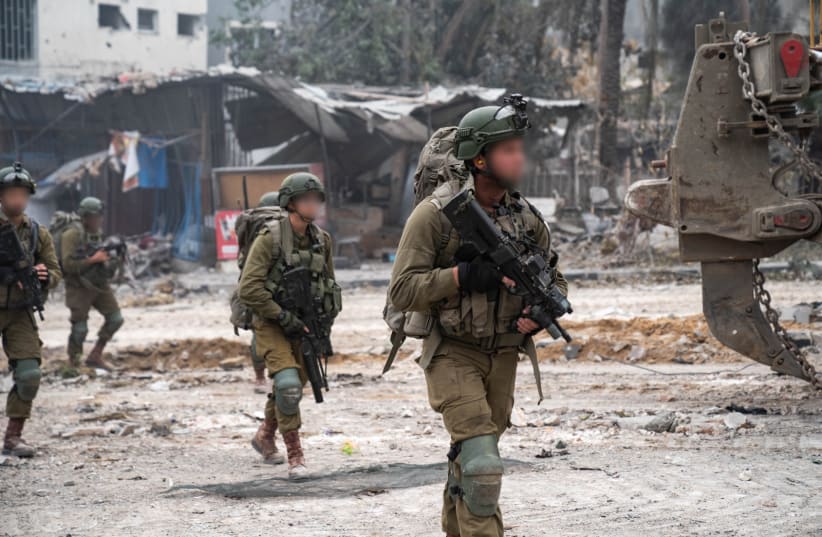
As the war in Gaza enters a new phase and international pressure grows, the need for a clear vision of where Gaza and the region are headed “the day after” the war is becoming more pressing.
According to most reports, the war is now shifting slowly from a campaign of intensive airstrikes and artillery strikes, alongside a large-scale ground offensive, to more pinpoint raids and operations aimed at clearing specific areas of terrorist threats. The planned release of a large portion of the reservists currently called up is one sign that this process is beginning.
But as that shift takes place, the defense establishment is being left without a clear vision of what they need to achieve and the public and the international community are in the dark about what the actual goals of the war are, if they’ve even been decided yet. While “toppling Hamas” and “defanging Gaza” are catchy slogans, they don’t point to any specific, concrete vision.
What does toppling Hamas mean?
Toppling Hamas could mean hunting down every last Hamas member, it could mean being satisfied with just capturing or eliminating the upper ranks of the terrorist movement, and it could mean any number of other goals.
Assuming the goal is, at minimum, to eliminate enough of Hamas’s upper ranks that it becomes dysfunctional and doesn’t pose a threat, then there remains one glaring question: What comes next?
That question isn’t something that can wait till the war is over, especially because the answer to it affects how the war needs to be carried out right now.
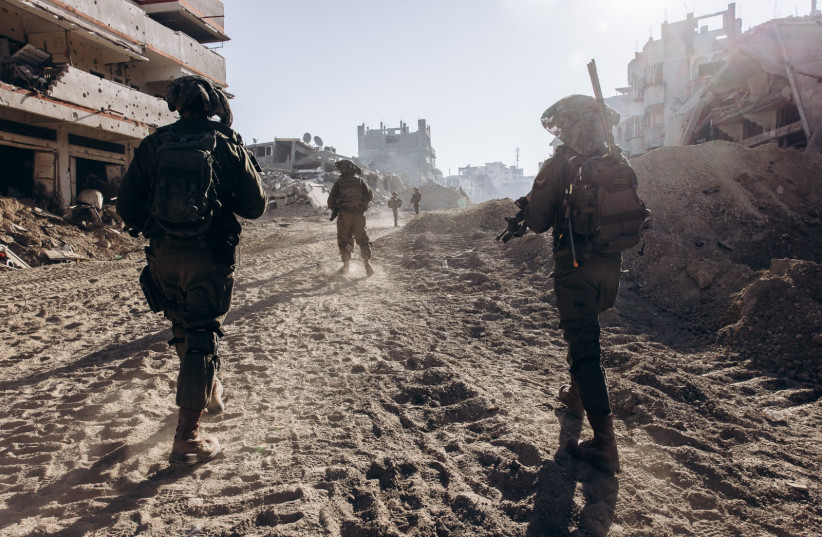
There are over a million people crammed in southern Gaza at the moment. As the IDF switches over to more pinpoint raids, navigating amid that crowd of people is going to only grow more difficult.
As areas of the northern Strip are cleared of threats, the rebuilding process will need to begin so that those sheltering in southern Gaza can be moved back there in an orderly fashion. This will help alleviate the humanitarian crisis, assuage concerns in the international community about allegations of planned ethnic cleansing, and give the IDF more freedom of operation in the southern Strip, where Yahya Sinwar, Mohammed Deif, and other Hamas leaders are believed to be hiding.
Additionally, alongside a mission concerning Hamas itself, the defense establishment and the political echelons need to prepare an outline to deal with the plethora of challenges a de-Hamasified Gaza will pose.
Inherently, the removal of Hamas will create a vacuum, and that kind of situation rarely ends well. While Hamas is bad, there are even more extremist factions in Gaza, including the Palestinian Islamic Jihad and various Salafi groups such as ISIS. When Palestinians in Gaza look for new leadership, it is intolerable that those groups be the only option they’re left with. That will only perpetuate the conflict, not solve it.
A plethora of options sit in front of the government, but it remains unclear which direction they’re pointed in. Is the government pushing for a military occupation of Gaza, just an adjustment to the already existent controls on Gaza’s border, or a regional policing force? What about civil matters? Who will take care of governing Gaza?
While government officials have made very clear what they don’t want, they haven’t said much about what they do want. In the meantime, the government is pushing off the discussion about the day after the war, with Prime Minister Benjamin Netanyahu insisting on Sunday that such a discussion could only be had once the war is already over.
The problem is that in a war like the one being waged between Israel and Hamas, there is no clear endpoint. The best analog may be the war against ISIS. In 2017, Iraq declared “victory” over ISIS, but ISIS is still very much a threat in the region and around the globe even today, six years later. It still conducts terrorist attacks everywhere from Kabul to Paris.
In the current war, Israel is fighting against not just a physical group, but an entire ideology, one that finds its expression in several other groups in Gaza and throughout the region. As the war against ISIS has shown, bombs quite simply aren’t enough. So what is?
One option brought up often in recent months is a plan similar to the Marshall Plan in Europe after WWII, an extensive rehabilitation plan that learned many lessons from the abject failure of the Treaty of Versailles. Instead of seeking revenge and instilling hate, discord, and humiliation which only fostered another world war, the Allies provided many of the former Axis countries with a future to look forward to.
There may be other lessons to learn from Germany’s de-Nazification, both through internal and external measures. The Germany of today is very clearly different from the Germany of 1945. The Nazi movement went from widely supported to abhorrent in the eyes of most Germans.
It is imperative for the future of the security of both Israel and the Palestinians that a similar objective be pursued in Gaza and the West Bank, but such a result cannot come from just war. A policy of pure vengeance is unlikely to accomplish anything more than the Treaty of Versailles accomplished. It will require a civil and diplomatic effort as well, part of which will need to be economic rehabilitation which will work better if started sooner rather than later.
Three months into the war and with no end in sight, the government needs to make clear statements about what it intends for the day after. Failing to do so risks losing international support and harming the war effort.
The State of Israel has always had a problem with kicking the can down the road instead of confronting issues, be it the continued failure to form a constitution, the refusal to seriously discuss a lasting solution for the Palestinian-Israeli conflict, or a whole plethora of other issues which remain in limbo for years and even decades on end. In a matter of life and death such as the situation in Gaza, there is nowhere else for the can to go. It has reached the end of the road.
Go to the full article >>Compensation outline for economic damage from war extended

A compensation outline to assist businesses and their post-war impact has been extended to include war-related damages through the end of December 2023, Israeli media reported.
The Tax Authority will allow submission of online claims for the grant until the end of a period of 90 days from the date the system opens, on January 15, 2024.
IDF finds Hamas bodycam footage of 'civilians' carrying RPGs
Terrorists, who have since been eliminated by the IDF, disguised their RPG in a civilian area using a blanket.

The IDF's 401st Brigade has been operating against Hamas's Daraj Tuffah Battalion in the northern Gaza Strip over the last week. The soldiers conducted targeted raids on military posts and the residences of senior officials and neutralized dozens of anti-tank missile cells.
Soldiers from the Shaked Battalion, based on intelligence on the presence of a terrorist cell in a building, scanned the area and conducted a targeted raid on the location. During the activity, soldiers encountered several Hamas terrorists and engaged in a firefight, which ended with the soldiers killing the terrorists.
Soldiers also uncovered a camera belonging to one of the terrorists who was killed, with footage showing Hamas’s operational methods. The footage shows a terrorist presenting himself as a civilian while hiding an RPG-type rocket under a blanket in a civilian area. This strategy, and the use of Gazan citizens as human shields, has been a well-recorded tactic of Hamas.
The footage shows a recording of the now-eliminated terrorist praising God that he was able to destroy 3 Israeli military vehicles.
Commander of the Shaked Battalion, Lt.-Col. Yair, said, "Our forces eliminated the terrorists and found their weapons along with a large amount of weaponry that was seized. The Shaked Battalion will continue to fight the enemy as long as necessary."
Hamas's operational method
As previously mentioned, Hamas builds operations and engages in terrorist activity within densely populated civilian areas. Only yesterday, the IDF arrested dozens of terrorists hiding in a school in central Gaza. While hiding alongside civilians, the terrorists launched RPGs and other arms at Israeli forces operating in the area.
The IDF has also located explosives in UNRWA school bags and schools.
Go to the full article >>IDF will offer soldiers the option of ‘harvesting’ their sperm in case of death
This was decided by the Knesset Health Committee on Monday in preparation of the law for using the sperm of a deceased person for procreation.
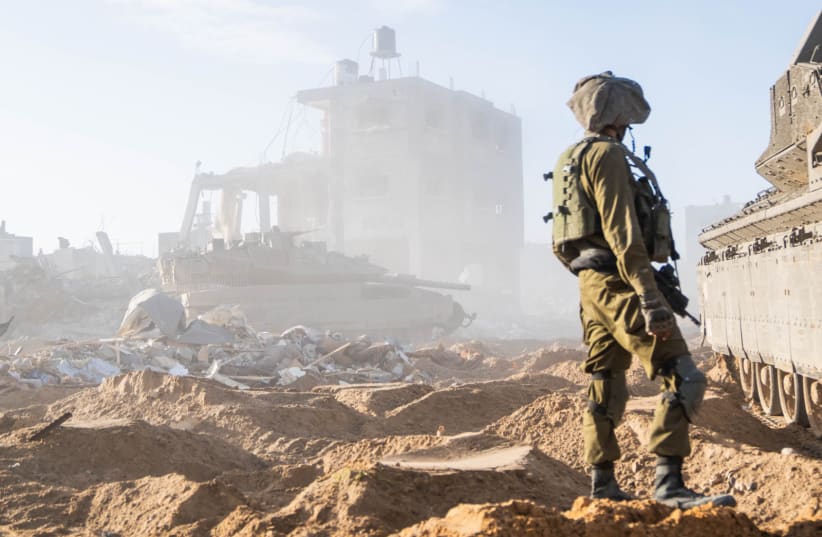
An affidavit on giving permission for sperm to be removed from their bodies if they die will from now be publicized on the IDF’s website, Meitiv, for newly recruited soldiers and also sent to each one directly.
Those who agree to it also need to get an attorney to sign the affidavit.
This was decided by the Knesset Health Committee on Monday in preparation of the law for using the sperm of a deceased person for procreation. Acting committee chairman MK Merav Ari (Yesh Atid) announced that in coordination with the Defense Ministry, an affidavit from IDF that he is interested in the use of his sperm will be offered on the website.
Information about this option will be provided in a text message to of all those designated for recruitment. Ben-Ari emphasized that cooperation with government ministries is necessary.
Col. Alon Meitav explained that with the exception of the conscription order itself, all contact with the Shin Bet takes place through the website, which receives about nine million hits a month and about 8,000 inquiries a day. In addition, contact with the IDF is also carried out through text messages on the phone.
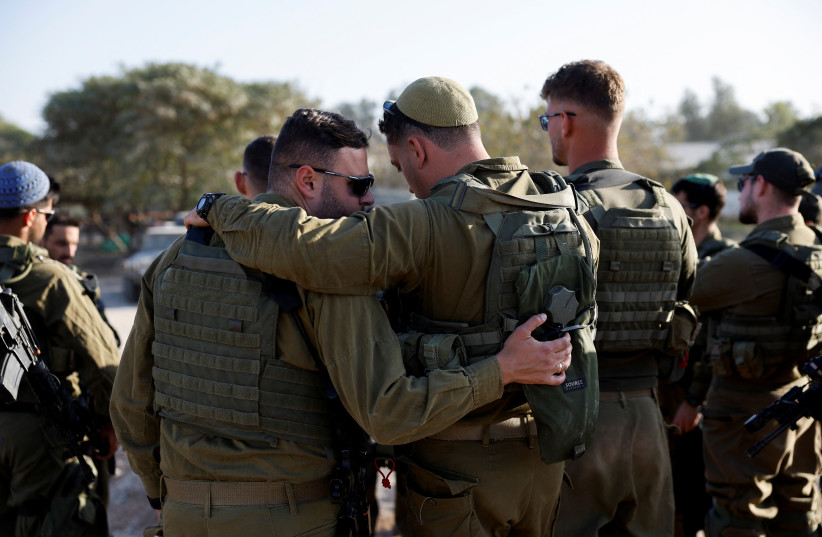
Attorney Masada Matzlawi, from the counseling and legislation department at the Justice Ministry, spoke about the wording of the law that would reflect the wishes of the deceased. Zvi Hauser, a former MK and the initiator of the law, suggested that it is enough for the court to be convinced that the deceased did not object.
Rabbi Lior Segev from the Puah Institute for Fertility, Medicine and Halacha emphasized that since taking the sperm is a surgical operation, the expression of the will of the deceased is required.
Families ask to make process easier
Dudi, the father of Zur Sa’idi who was murdered by Hamas terrorists and whose sperm was saved, asked that the legislators make it easier for the families and not to require a hearing in court to approve the use of the sperm.
Attorney Tal Fox from the legal bureau of the Health Ministry, promised that after the law is passed, the various ministry offices that deal with the issue will be informed of the decision.
Attorney Ya’akov Shapira, the head of Jewish law at the Justice Ministry called for the IDF’s directive to be distributed to the soldier’s parents to save them from having to deal with bureaucratic delays in harvesting and freezing the semen for implantation.
Go to the full article >>Kibbutz Be'eri confirms death of Israeli taken into Gaza
Kibbutz Be'eri on Monday confirmed the death of resident Ilan Weiss, reported as missing since the October 7 massacre.
Weiss was murdered while serving in the Kibbutz's emergency standby squad, with his body presumably taken into the Gaza Strip. The Kibbutz requested that the IDF acknowledge him as a casualty of war.
Go to the full article >>Iran stations warship in Red Sea as US aircraft carrier leaves Middle East - analysis
The story about the US carrier leaving the region was covered in Al-Mayadeen media, which is pro-Iran, showing that pro-Iran figures in the region are watching.

Iran's Alborz warship has passed through the Bab al-Mandab Strait and entered the Red Sea, the country's semi-official Tasnim news agency reported on Monday.
Iranian warships have been operating in the region "to secure shipping lanes since 2009," Tasnim said.
Go to the full article >>Israeli residents of six Gaza border towns set for return home
The first villages that the IDF has cleared to go back will be three in the Ashkelon corridor, followed by three in the Sha'ar Hanegev region.
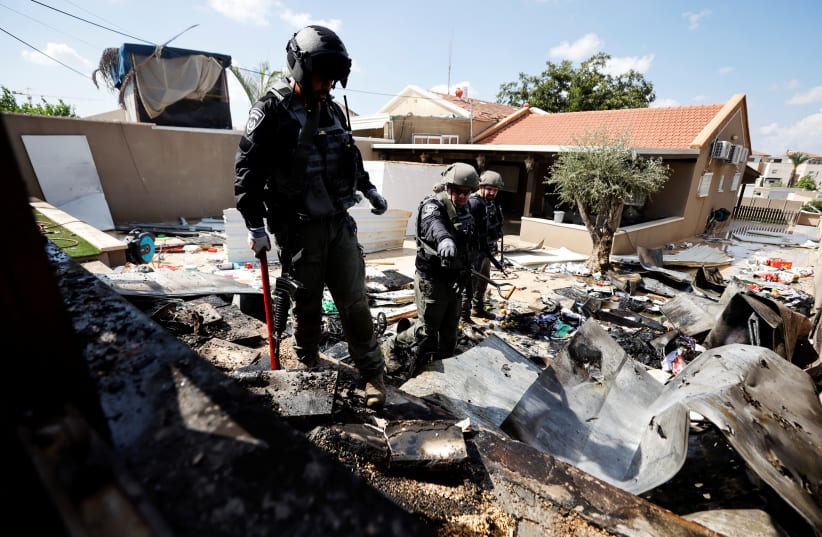
Residents of six Gaza border Israeli villages which are between four to seven kilometers from the border will start returning home for the first time since they were evacuated following Hamas’s invasion of the South in October.
The first villages that the IDF has cleared to go back will be three in the Ashkelon corridor, followed by three in the Sha'ar Hanegev region.
Technically, these villagers could start to return effective immediately, although some delay in handling practical issues is expected.
After those six, presuming the security situation remains stable and other practical issues progress as hoped, more villages in the four to seven-kilometer range from the border will start to be able to return to the Sdot Hanegev area.
Another round after that will include the Eshkol region, though that is even more dependent on new progress in gaining more operational control in parts of southern Gaza.
Generally, the IDF will first allow village residents to return to areas that are closer to northern Gaza, where the IDF already has had stronger control for the last few weeks, whereas Israeli villages that are closer to southern Gaza will need to wait longer, according to new gains the IDF expects to make.
Go to the full article >>IDF foils launch of Hezbollah drone fleet at Israel
Israeli Air Force fighter jets foiled a planned launch of a Hezbollah drone fleet at Israeli territory early on Monday morning, the IDF said.
A strike targeting the terror cell successfully destroyed the drones, the military said. Further, the IDF struck Hezbollah terror infrastructure inside Lebanese territory.
Go to the full article >>Hamas's 2024 New Years rocket fire signals war not over - analysis
A new report from pro-Iran media following a Hamas rocket barrage at the start of the new year indicates that the war is far from over.
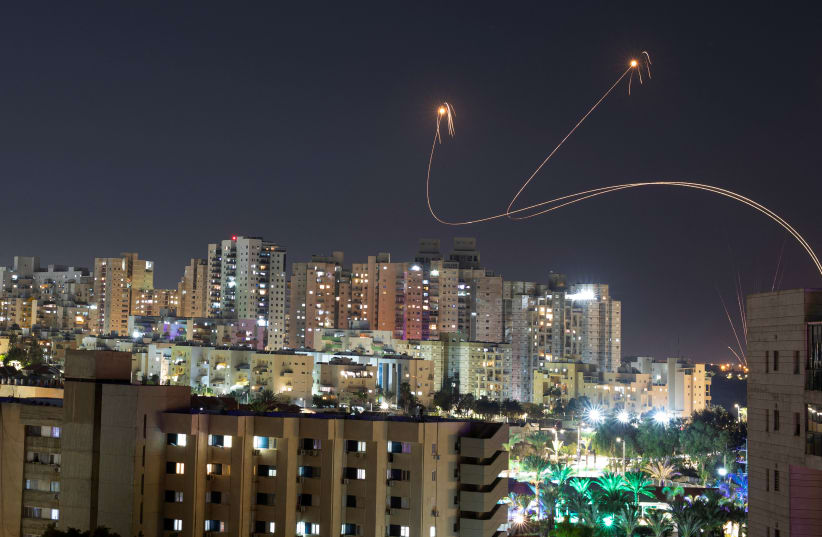
Hamas claimed responsibility for the rocket fire against Israel that occurred just after midnight, taking place as people were ringing in the New Year. Hamas timed the attack to coincide with the transition from 2023 to 2024.
This attack was symbolic and important as Hamas rocket fire has been reduced in the last week. The group has also lost control of a portion of northern Gaza, as well as areas in central Gaza and Khan Yunis.
Despite this, Hamas showed it can still assemble a barrage of rockets. Al-Mayadeen media, which is pro-Iran, claimed that Hamas carried out a barrage of dozens of M-90 rockets, targeting Tel Aviv and central Israel. This occurred as the war today approaches 90 days or three months. This amount of rocket fire is designed to show Hamas is not yet defeated. It shows that Hamas will continue this war, even if Israel transitions to a kind of low-intensity conflict.
The fight is far from over, report indicates
The report at Al-Mayadeen also detailed how Hamas continues to fight in various areas of Gaza. It said that Hamas continued to use air defense systems to try to target an IDF helicopter and an IDF drone. The reports, even if they exaggerate Hamas's fighting abilities, are designed to message to Israel and Hamas allies in Iran, as well as to the US, that the terrorist group is far from being defeated.
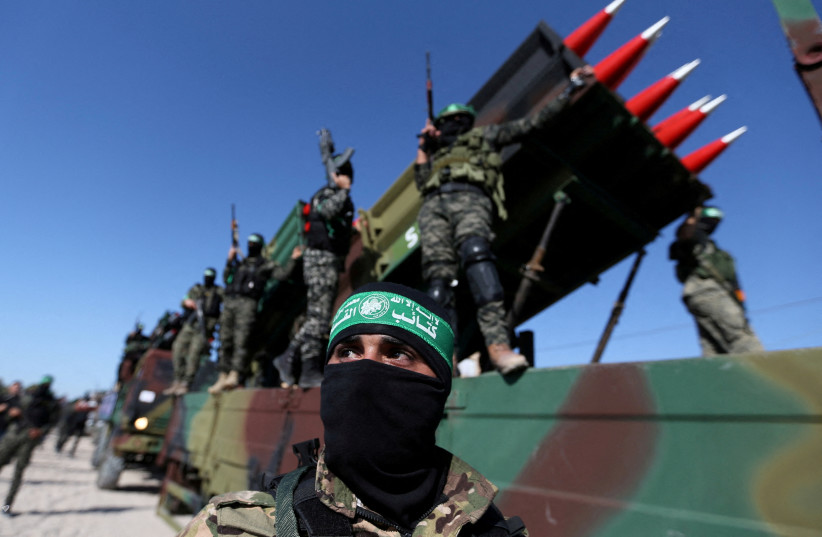
This may be simple boasting, but the group appears ready to transition to a new phase of war. This would attempt to wear down Israeli forces in Gaza until they withdraw without letting Israel achieve its stated objectives. Hamas leadership in Gaza is still intact, and it still holds almost 130 hostages, meaning that the terrorist group has been able to weather the 90 days of war.
Go to the full article >>Israel-Hamas War: What you need to know
- Hamas launched a massive attack on October 7, with thousands of terrorists infiltrating from the Gaza border and taking some 240 hostages into Gaza
- Over 1,200 Israelis and foreign nationals were murdered, including over 350 in the Re'im music festival and hundreds of Israeli civilians across Gaza border communities